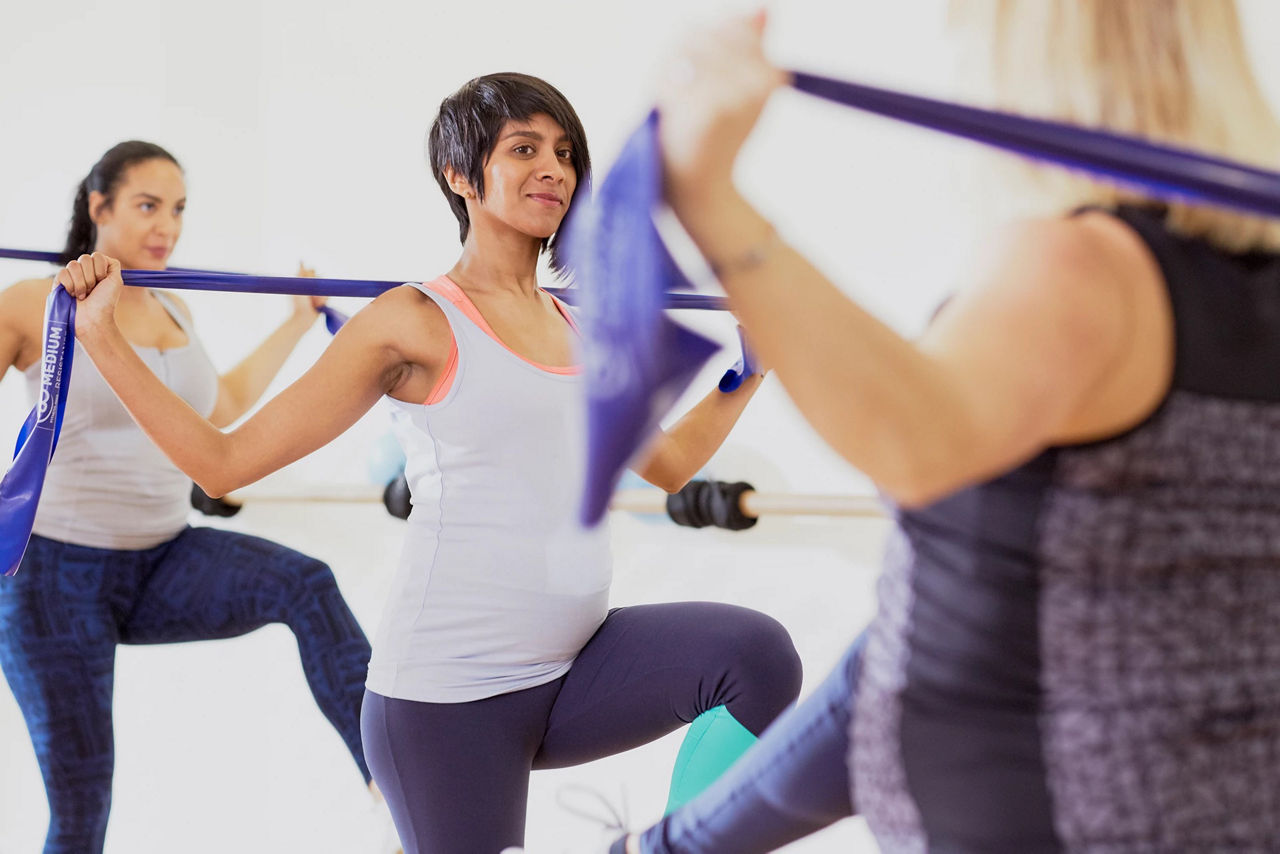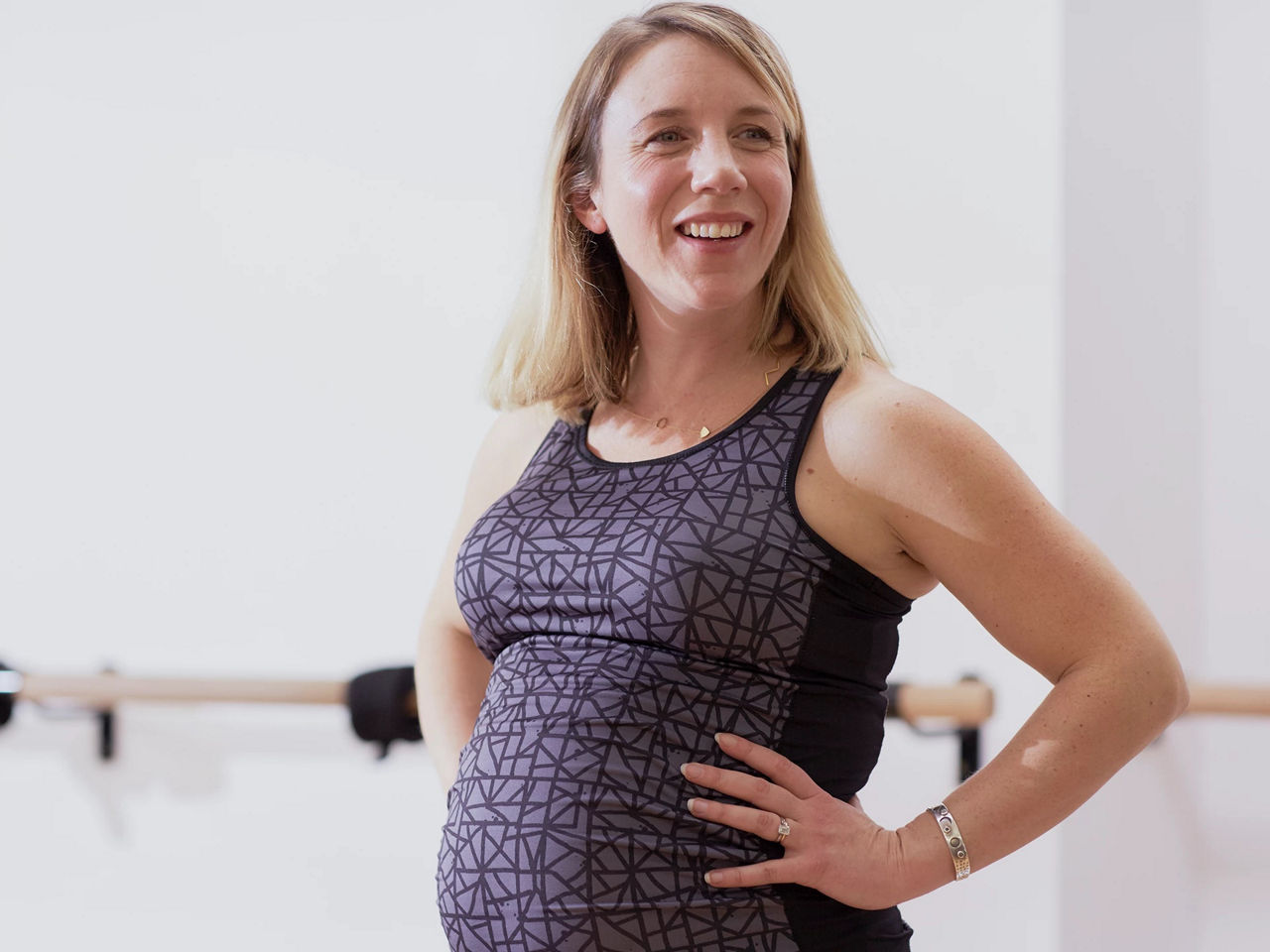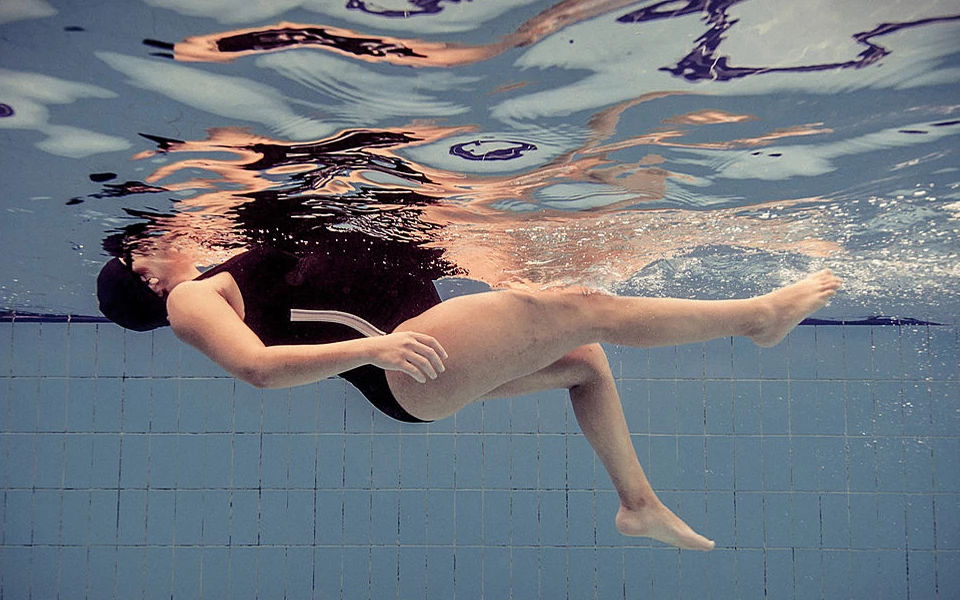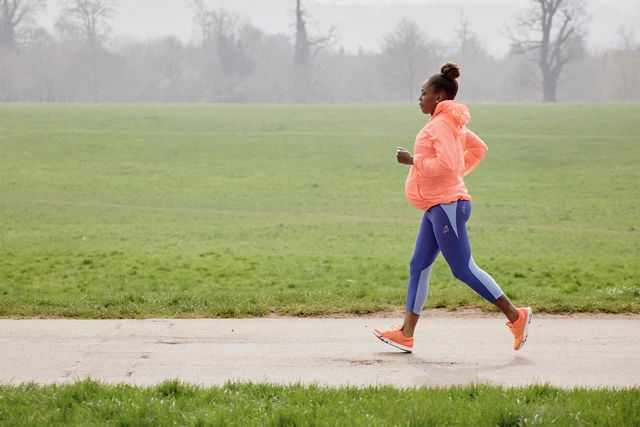You don’t need much equipment to start strength training, just a few basics:
- A towel or mat if you’re working out on a hard floor.
- A light or medium weight resistance band.
- Arm or leg weights are not essential but can be used to increase intensity. Alternatively, use water bottles, tins or anything weighing roughly 1-2kgs that you have to hand.










